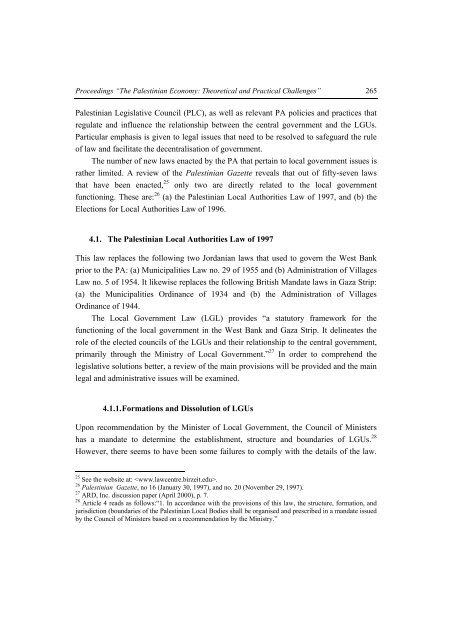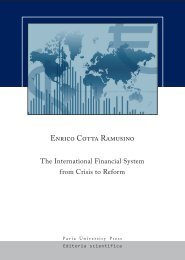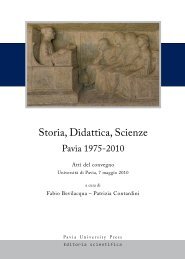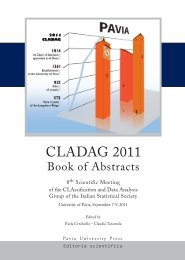The Palestinian Economy. Theoretical and Practical Challenges
The Palestinian Economy. Theoretical and Practical Challenges
The Palestinian Economy. Theoretical and Practical Challenges
You also want an ePaper? Increase the reach of your titles
YUMPU automatically turns print PDFs into web optimized ePapers that Google loves.
Proceedings “<strong>The</strong> <strong>Palestinian</strong> <strong>Economy</strong>: <strong>The</strong>oretical <strong>and</strong> <strong>Practical</strong> <strong>Challenges</strong>” 265<br />
<strong>Palestinian</strong> Legislative Council (PLC), as well as relevant PA policies <strong>and</strong> practices that<br />
regulate <strong>and</strong> influence the relationship between the central government <strong>and</strong> the LGUs.<br />
Particular emphasis is given to legal issues that need to be resolved to safeguard the rule<br />
of law <strong>and</strong> facilitate the decentralisation of government.<br />
<strong>The</strong> number of new laws enacted by the PA that pertain to local government issues is<br />
rather limited. A review of the <strong>Palestinian</strong> Gazette reveals that out of fifty-seven laws<br />
that have been enacted, 25 only two are directly related to the local government<br />
functioning. <strong>The</strong>se are: 26 (a) the <strong>Palestinian</strong> Local Authorities Law of 1997, <strong>and</strong> (b) the<br />
Elections for Local Authorities Law of 1996.<br />
4.1. <strong>The</strong> <strong>Palestinian</strong> Local Authorities Law of 1997<br />
This law replaces the following two Jordanian laws that used to govern the West Bank<br />
prior to the PA: (a) Municipalities Law no. 29 of 1955 <strong>and</strong> (b) Administration of Villages<br />
Law no. 5 of 1954. It likewise replaces the following British M<strong>and</strong>ate laws in Gaza Strip:<br />
(a) the Municipalities Ordinance of 1934 <strong>and</strong> (b) the Administration of Villages<br />
Ordinance of 1944.<br />
<strong>The</strong> Local Government Law (LGL) provides “a statutory framework for the<br />
functioning of the local government in the West Bank <strong>and</strong> Gaza Strip. It delineates the<br />
role of the elected councils of the LGUs <strong>and</strong> their relationship to the central government,<br />
primarily through the Ministry of Local Government.” 27 In order to comprehend the<br />
legislative solutions better, a review of the main provisions will be provided <strong>and</strong> the main<br />
legal <strong>and</strong> administrative issues will be examined.<br />
4.1.1. Formations <strong>and</strong> Dissolution of LGUs<br />
Upon recommendation by the Minister of Local Government, the Council of Ministers<br />
has a m<strong>and</strong>ate to determine the establishment, structure <strong>and</strong> boundaries of LGUs. 28<br />
However, there seems to have been some failures to comply with the details of the law.<br />
25 See the website at: .<br />
26 <strong>Palestinian</strong> Gazette, no 16 (January 30, 1997), <strong>and</strong> no. 20 (November 29, 1997).<br />
27 ARD, Inc. discussion paper (April 2000), p. 7.<br />
28 Article 4 reads as follows:“1. In accordance with the provisions of this law, the structure, formation, <strong>and</strong><br />
jurisdiction (boundaries of the <strong>Palestinian</strong> Local Bodies shall be organised <strong>and</strong> prescribed in a m<strong>and</strong>ate issued<br />
by the Council of Ministers based on a recommendation by the Ministry.”
















